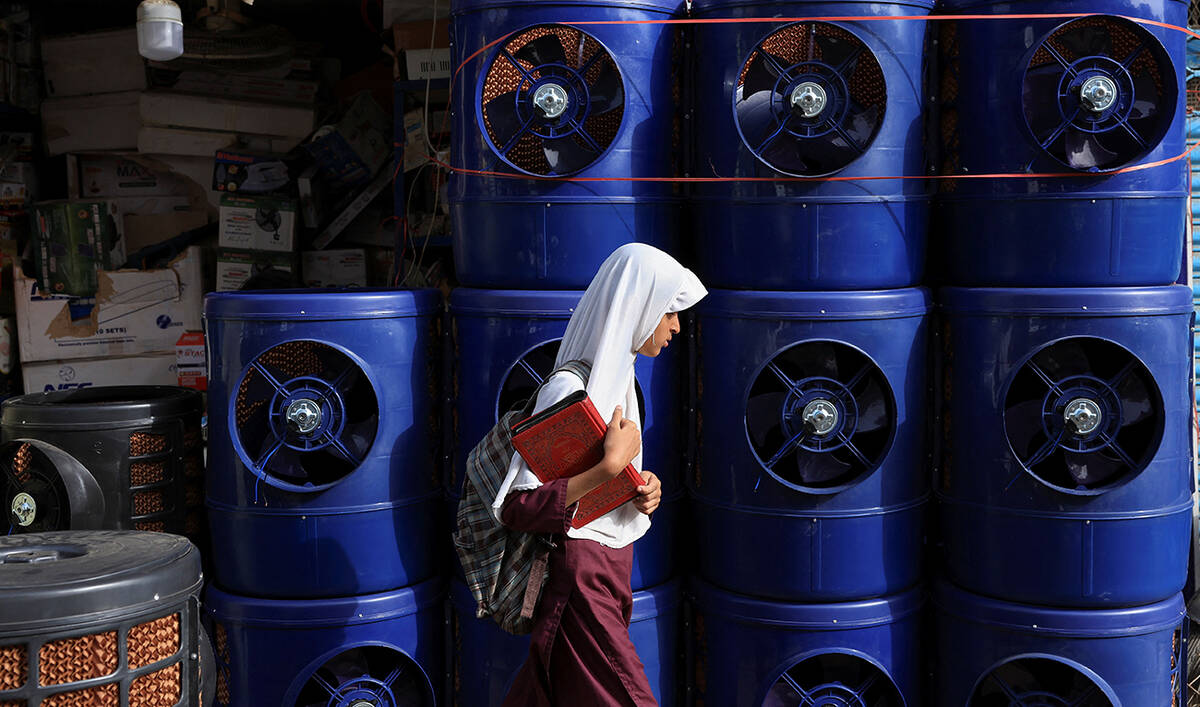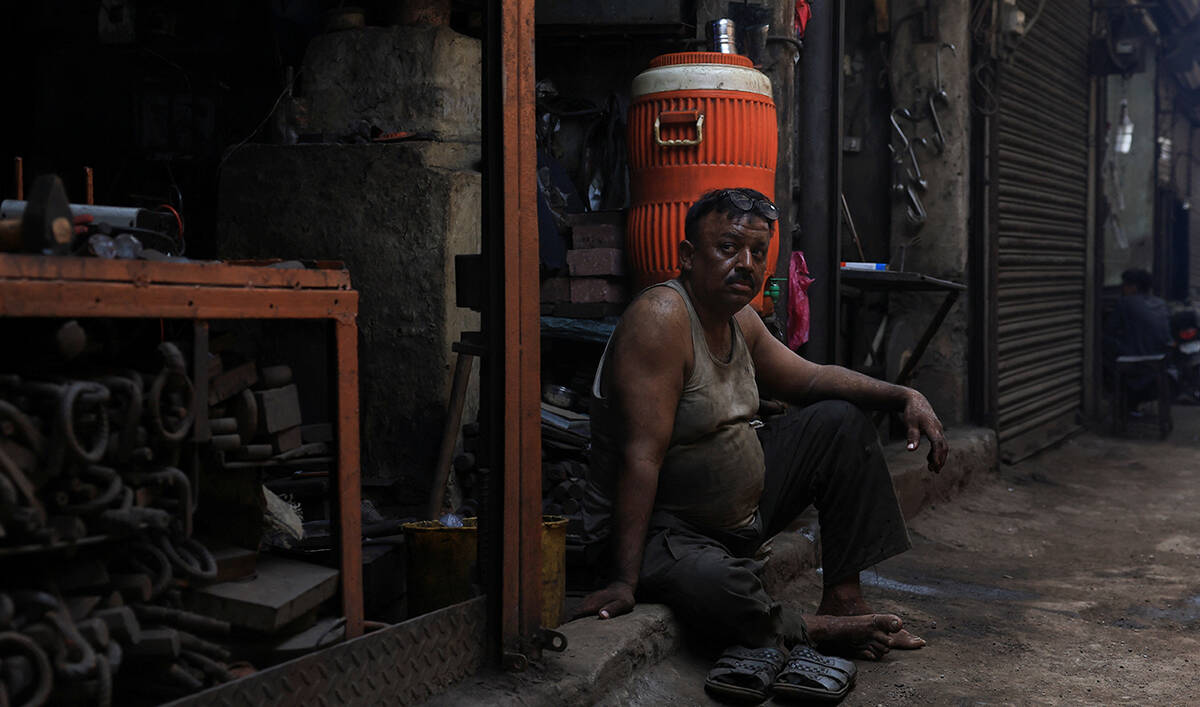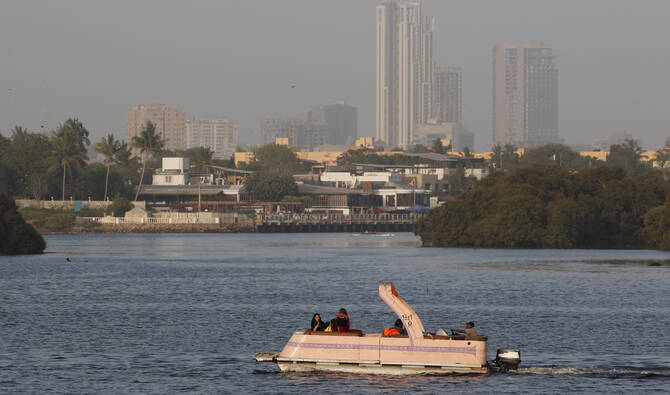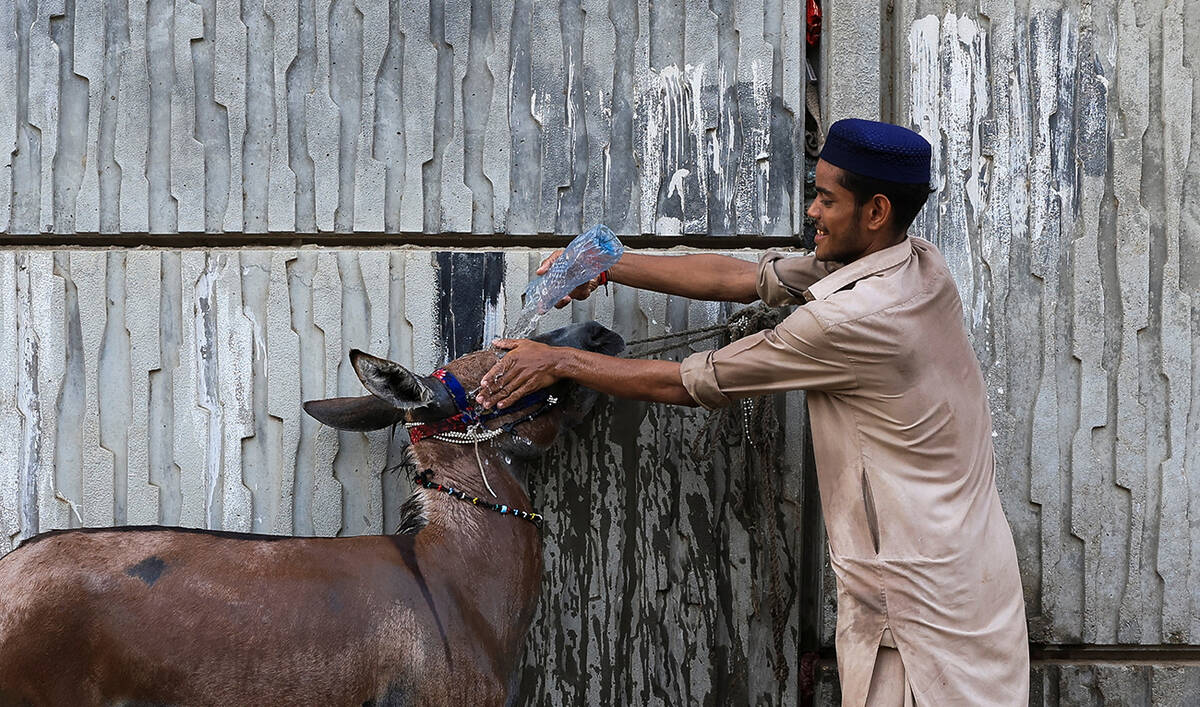PESHAWAR: One of the oldest universities in Pakistan’s northwestern Khyber Pakhtunkhwa province issued a circular last month to notify its employees that it was facing a financial crisis and was not in a position to pay full salaries due to unavailability of funds.
Realizing that the situation would have a bearing on their education, its students uniquely registered their protest by begging in front of the main gate of their education institution and asking passers-by to help keep the place solvent.
Founded in 1950, the University of Peshawar is a public sector institute that has produced several high-profile intellectuals, politicians, and public figures. However, its current state of affairs forced students to set up their “Jamia Bachao Camp” — or Save the University Camp — to highlight the issue and make it visible to relevant government authorities.
“It was a symbolic protest to remind the provincial administration that it should take such financial crises more seriously,” Tahir Ullah, an MPhil scholar, told Arab News on Tuesday. “What has happened owes to cuts in university grants, embezzlement of funds and non-serious attitude of lawmakers toward education.”
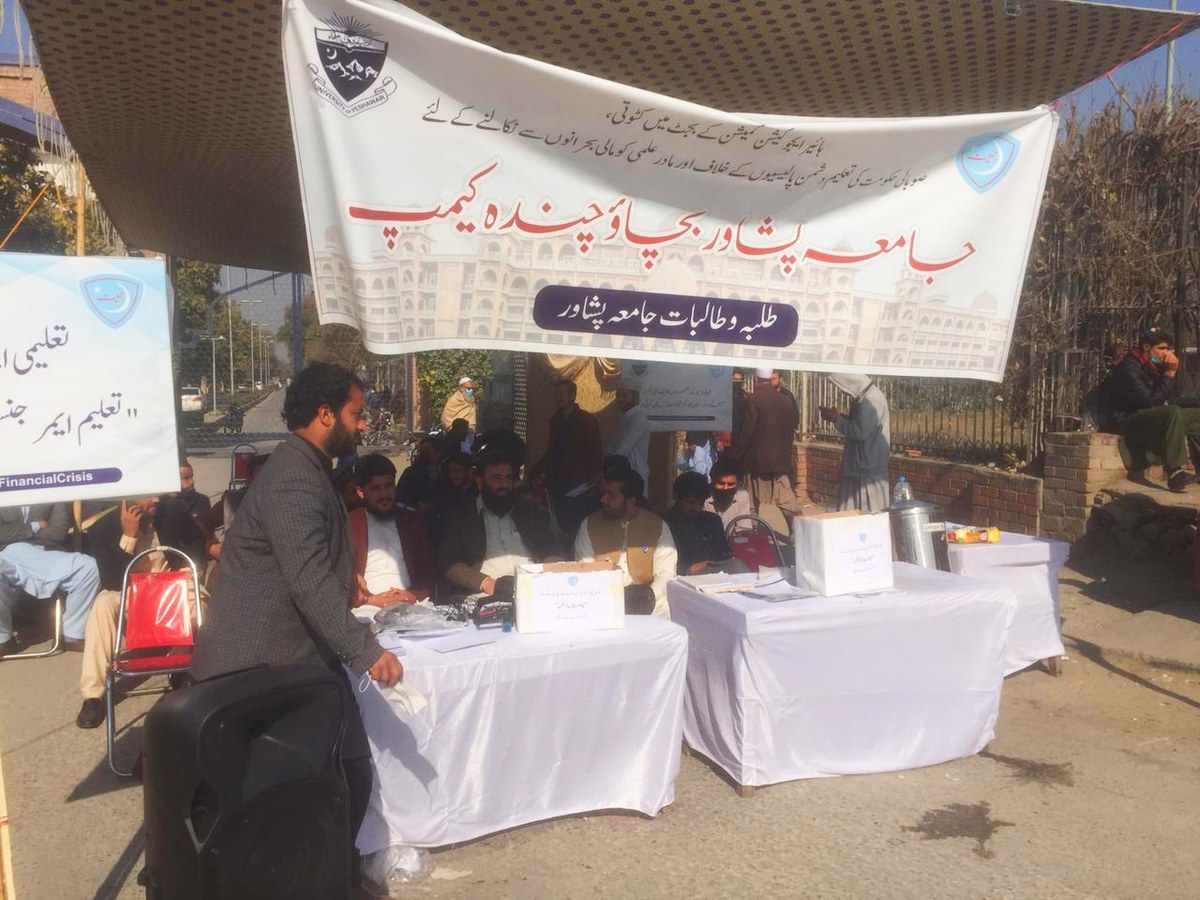
Students of Peshawar University have set up a camp to collect donations as the administration of their academic institution announced last month that it was facing a financial crisis and could not pay its employees their full salaries. Picture taken on January 28, 2021, in Peshawar. (Photo courtesy: Jamia Bachao Camp)
The Peshawar University Teachers’ Association described the situation as “chaotic,” saying it was likely to force foreign qualified faculty members to abandon the education institute and look for better employment opportunities.
“We have started a token strike in the first phase of our protest and worn black bands,” Dr. Fazal Nasir, the association’s president, told Arab News. “Our general body will decide any further protest guidelines.”
“The provincial administration should understand that universities produce good citizens,” he added. “It’s the state that needs to invest in the education of its people. Ironically, the current administration expects to earn revenue from such education institutions.”
The University of Peshawar has about 17,000 students, 40 departments, four research centers, three colleges, and two schools. The university administration only disbursed basic salaries among its 650 teachers and 2,000 other staff members this month, though its clerical crew refused to receive reduced salaries.
Nasir revealed that the education institution received Rs1.3 billion from the federal government every year and generated about Rs2 billion on its own. However, its annual expenses were about Rs4.45 billion, and it usually found itself in a huge deficit.
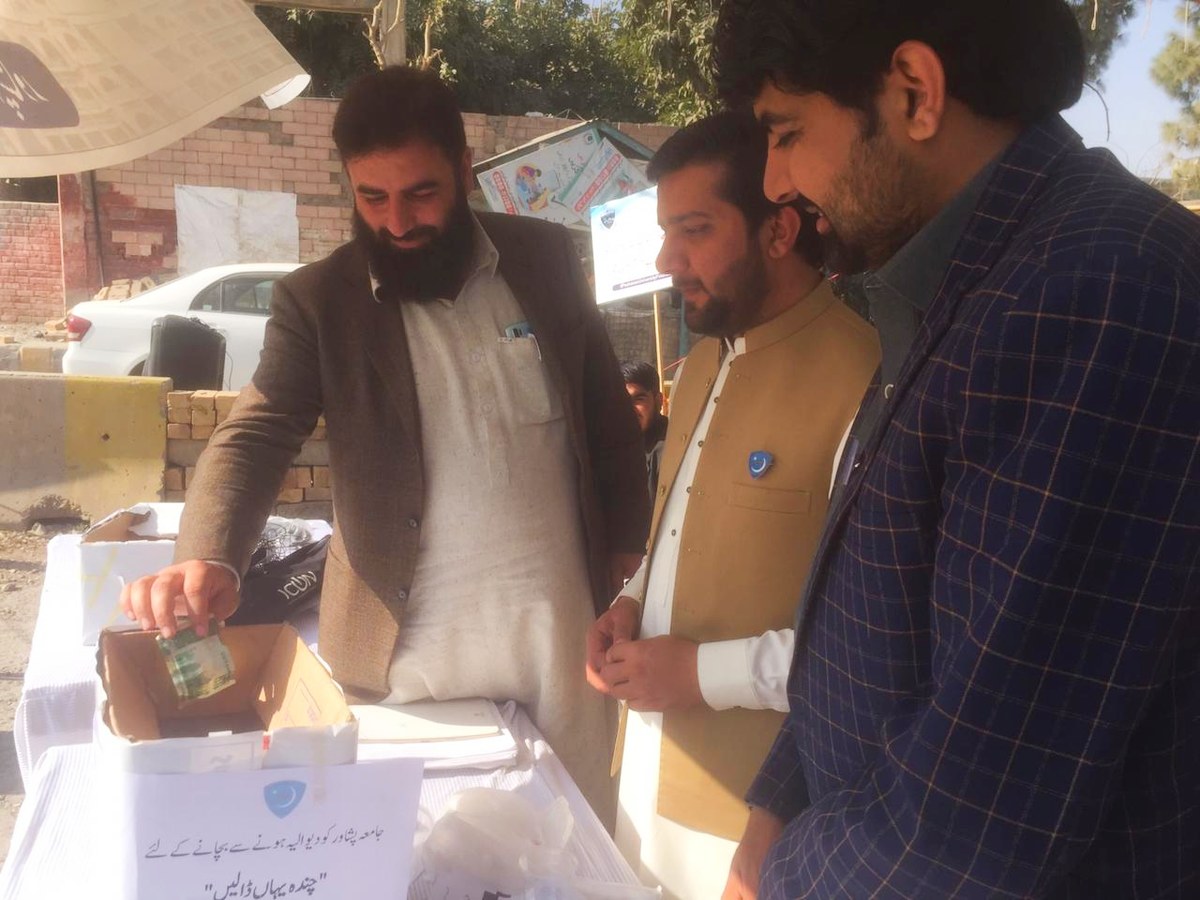
Students, teachers and passers-by donate money to save the University of Peshawar from its financial crisis on January 28, 2021, in Peshawar. (Photo courtesy: Jamia Bachao Camp)
Imad Nizami, who studies environmental sciences, said that students had taken up the matter with the Higher Education Commission and various lawmakers, adding that none of them seemed interested in resolving the issue.
“If the university can’t pay its employees, how will our education continue or where will new research come from,” he asked.
Kamran Bangash, who advises the Khyber Pakhtunkhwa chief minister on higher education, promised to release financial funding for the university.
“Our administration considers education as a priority area and we have tried to create a conducive learning environment in all academic institutions,” he said. “The University of Peshawar has requested for a bailout package of Rs1.4 billion. The government is ready to pay it, but the university will also need to improve its administrative performance.”
However, students participating in the protest movement say the government should provide a clear and sustainable plan to secure public universities. As of now, universities are required to generate 60 percent revenue and get 40 percent official grants to meet all their expenses.
The University of Peshawar has its own lands and assets. Despite earning a substantial amount of money from them, however, it fails to generate enough funds to meet its expenditures.
Speaking on behalf of the university management, Nauman Khan, a spokesperson, acknowledged that there was a massive financial shortfall every year and the situation was moving from bad to worse.
“The university closed during the lockdown and students didn’t deposit their semester fees,” he said. “We were already in deficit and this further mounted financial pressure on us. Our university is the biggest in the province and pays pensions to retired employees. This is also a huge burden.”
To minimize the deficit, Khan continued, there was no other option but to cut down salaries to run the affairs of the university.
Meanwhile, protesting students said they had generated Rs5700 and were going to deposit it in the university’s bank account.







